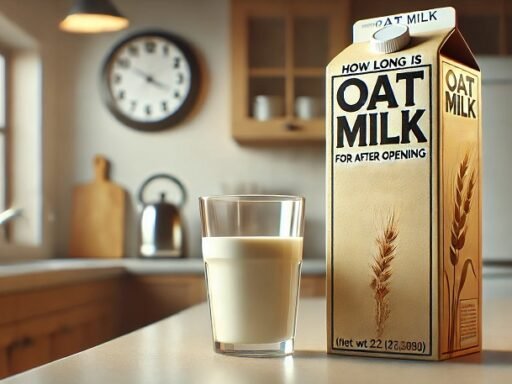Does Almond Milk Cause Acne? In recent years, almond milk has surged in popularity as a preferred alternative to dairy milk, thanks to its plant-based origins and potential health benefits. But as more people switch to almond milk, questions arise about its impact on skin health, particularly acne. Does almond milk cause acne? This question is at the forefront of many skincare discussions.
Table of Contents
- The Nutritional Profile of Almond Milk
- The Link Between Diet and Acne
- Scientific Studies: What Does the Research Say?
- Anecdotal Evidence: What Are People Saying?
- Almond Milk and Acne: Is There a Connection?
- Conclusion: Does Almond Milk Cause Acne?
Understanding Acne: What Causes It?

Does almond milk cause acne? Before exploring whether almond milk contributes to acne, it’s essential to understand what causes acne in the first place. Acne is a skin problem caused by hair follicles becoming blocked with excess oil, dead skin cells, and bacteria. This causes acne, which can include pimples, blackheads, whiteheads, or cysts.
The primary factors contributing to acne include:
- Hormonal Changes: When your hormones change, especially during puberty, menstruation, or pregnancy, your skin might produce more oil, leading to acne.
- Diet: Certain foods can trigger acne in some people, such as those high in sugar, dairy, or unhealthy fats.
- Stress: Stress can exacerbate acne by increasing the production of cortisol, a hormone that stimulates oil production.
- Genetics: If your family members have acne, you’re more likely to get it too.
Given the role diet plays in skin health, it’s understandable why some might ask, “does almond milk cause acne?”
The Nutritional Profile of Almond Milk

To understand, does almond milk causes acne, we need to know its ingredients and how our bodies react to them. Almond milk is a plant-based beverage created by blending almonds and water and then straining out the almond pulp. It is often fortified with vitamins and minerals, making it a popular alternative to dairy milk.
Key Nutrients in Almond Milk:

- Low in Calories: Almond milk is naturally low in calories, making it a popular choice for those looking to manage their weight.
- No Cholesterol or Saturated Fats: Unlike dairy milk, almond milk contains no cholesterol or saturated fats, which can be beneficial for heart health.
- Rich in Vitamin E: Almond milk is a good source of vitamin E, an antioxidant that protects skin cells from damage caused by free radicals.
- Calcium and Vitamin D: Many commercial almond milks are fortified with calcium and vitamin D, essential nutrients for bone health.
Given these benefits, it’s easy to see why almond milk is a favorite among health-conscious consumers. However, the question is not answered, “does almond milk cause acne?”
A L S O R E A D
Can You Drink Milk on Carnivore Diet? Harmful or Helpful
Can You Freeze Oat Milk? The Ultimate Guide to Preserve Your Plant-Based Beverage
How Long Do Almonds Last? A Comprehensive Guide to Almond’s Shelf Life
Are Olives Vegetables? The Surprising Truth About This Culinary Gem
The Link Between Diet and Acne
To understand whether almond milk might cause acne, it’s essential to explore how diet influences skin health. There are foods that may contribute to acne. For instance, high glycemic index foods like white bread, sugary snacks, and certain dairy products have been linked to acne flare-ups.
Dairy and Acne: The Controversy
Dairy products, particularly cow’s milk, have been associated with acne in several studies. The hormones and substances in cow’s milk might cause skin to produce more oil, leading to clogged pores and acne. This association has led many to seek non-dairy alternatives, such as almond milk, in the hopes of reducing acne.
Does Almond Milk Cause Acne?
Does almond milk cause acne? The primary concern about almond milk and acne revolves around its ingredients and how they may affect the skin. So, does almond milk cause acne? Consider the following:
- Additives and Preservatives: Some almond milks contain additives, preservatives, and sweeteners that could potentially trigger acne. These additives might include carrageenan, which has been linked to inflammation in some people.
- Nut Sensitivity: Individuals with a sensitivity or allergy to nuts, including almonds, may experience skin reactions, including acne, when consuming almond milk.
- Hormonal Impact: Unlike dairy milk, almond milk does not contain hormones that could directly influence acne. However, if almond milk is consumed in large quantities or as part of a diet high in sugar or processed foods, it could potentially contribute to skin issues.
- Individual Reactions: Skin health is highly individual. Different people may have different triggers for acne. Therefore, while some may find that almond milk does not cause acne, others may experience different results.
Scientific Studies: What Does the Research Say?

Does almond milk cause acne? To determine if almond milk causes acne, we should rely on scientific research and expert advice. Unfortunately, there is limited research specifically focused on almond milk and acne. However, we can gain some understanding from related studies:
Dairy Alternatives and Acne
Research on dairy alternatives like soy milk and almond milk is still emerging. Some studies suggest that switching from dairy milk to non-dairy alternatives can improve acne in some individuals. However, these studies often focus on the removal of dairy rather than the specific impact of almond milk.
Nutrient Influence
Almond milk’s rich vitamin E content is beneficial for skin health, as vitamin E is known to protect against oxidative stress, which can contribute to acne. Thus, it’s unlikely that almond milk alone would cause acne, but rather, the overall diet and individual sensitivities play a more significant role.
Anecdotal Evidence: What Are People Saying?

In the absence of extensive scientific studies on whether almond milk causes acne, anecdotal evidence can provide some insights. Online forums and social media platforms are rife with discussions on this topic. Some people report clearer skin after switching to almond milk, while others claim it has no impact or even worsens their acne.
Common Observations:
- Improved Skin: Many users have reported an improvement in their skin after switching to almond milk, especially if they were previously consuming large amounts of dairy.
- No Change: Others have observed no difference in their skin condition after making the switch, suggesting that factors other than almond milk may be at play.
- Worsened Acne: A minority of users claim that almond milk worsened their acne. This could be due to nut sensitivities or reactions to additives in processed almond milk.
Given these varied experiences, the answer to “does almond milk cause acne?” may differ from person to person.
Almond Milk and Acne: Is There a Connection?

Does almond milk cause acne? If you’re concerned about acne and wondering whether you should avoid almond milk, consider the following tips:
Monitor Your Skin
The best way to determine if almond milk is affecting your skin is to monitor your reactions. Keep a food diary and track any changes in your skin condition after consuming almond milk. If you notice a pattern, consider reducing or eliminating almond milk from your diet to see if there’s an improvement.
Choose Unsweetened and Additive-Free Options
If you decide to continue consuming almond milk, opt for unsweetened varieties without added preservatives or thickeners. This reduces the risk of consuming ingredients that could potentially irritate your skin.
Consider Other Factors
Remember that acne is a multifaceted condition influenced by many factors, including diet, stress, hormones, and skincare routines. It’s unlikely that almond milk alone will be the sole cause of acne. Instead, consider the overall balance of your diet and lifestyle.
Consult a Dermatologist
If you’re experiencing persistent acne, it’s always a good idea to consult a dermatologist. They can help identify the underlying causes of your acne and provide personalized recommendations for treatment and dietary adjustments.
Conclusion: Does Almond Milk Cause Acne?
So, does almond milk cause acne? The answer is not straightforward. While almond milk is generally considered a healthy alternative to dairy, it may trigger acne in some individuals due to additives, nut sensitivities, or overall diet composition. However, for many people, almond milk does not cause acne and can even be part of a skin-friendly diet.
The best approach is to observe your own body’s reactions and make dietary choices based on what works best for your skin. As with any health-related concern, individual responses vary, and what works for one person may not work for another. Therefore, while the question “does almond milk cause acne?” is valid, the best answer for whether almond milk causes acne depends on your individual skin and dietary needs.
Whether you’re switching to almond milk for health reasons or simply trying to avoid dairy, being mindful of your body’s reactions will help you make informed choices about your skincare and overall health.
FAQs: Does Almond Milk Cause Acne?
1. Can almond milk cause acne in people with nut allergies?
Yes, individuals with nut allergies or sensitivities may experience skin reactions, including acne, when consuming almond milk. If you suspect an allergy, it’s best to consult a healthcare professional and consider eliminating almond milk from your diet to see if your skin improves.
2. Is almond milk better for acne-prone skin than dairy milk?
For many people, almond milk may be a better choice than dairy milk if they are prone to acne. Dairy products have been linked to acne in some studies due to the hormones they contain. Almond milk, being plant-based, does not contain these hormones and may be less likely to trigger acne.
3. Does the sugar in almond milk contribute to acne?
Sweetened almond milk contains added sugars, which can contribute to acne in some people, especially those sensitive to high-glycemic foods. Opting for unsweetened almond milk can reduce this risk.
4. Are there any specific ingredients in almond milk that could cause acne?
Some almond milk brands contain additives like carrageenan, preservatives, and sweeteners, which might irritate the skin or contribute to acne in sensitive individuals. Choosing almond milk with minimal ingredients can help reduce this risk.
5. How long should I eliminate almond milk from my diet to see if it’s causing acne?
To determine if almond milk is contributing to your acne, try eliminating it from your diet for at least 2 to 4 weeks while monitoring your skin. If your skin improves during this period, almond milk may be a contributing factor.
6. Can switching to almond milk clear up existing acne?
For some people, switching from dairy milk to almond milk may help reduce acne, especially if their acne was triggered by dairy. However, since acne has multiple causes, including hormones and stress, almond milk alone may not clear up existing acne.
7. Does organic almond milk reduce the risk of acne?
Organic almond milk may reduce the risk of exposure to pesticides and chemicals, but it does not necessarily reduce the risk of acne. The impact on acne depends more on individual sensitivities and the overall ingredients in the almond milk.
8. Can drinking too much almond milk cause acne?
While almond milk itself is unlikely to cause acne in most people, excessive consumption, especially of sweetened or additive-laden varieties, could potentially contribute to skin issues. Moderation and choosing unsweetened, natural versions are key.
9. Is almond milk recommended for people with hormonal acne?
Almond milk does not contain hormones like dairy milk, making it a potentially better option for people with hormonal acne. However, individual reactions can vary, so it’s important to monitor your skin and consult a dermatologist if you have concerns.
10. What should I look for in almond milk if I’m concerned about acne?
If you’re concerned about acne, choose unsweetened almond milk with no added preservatives or thickeners. Look for brands that use minimal ingredients and avoid varieties with added sugars or artificial flavors.






